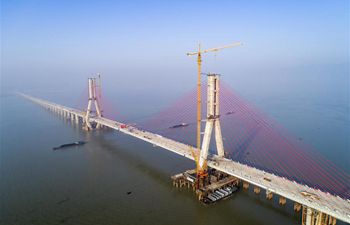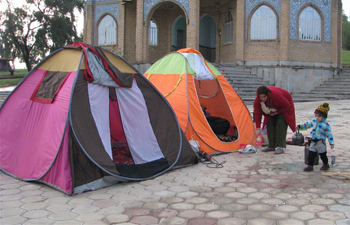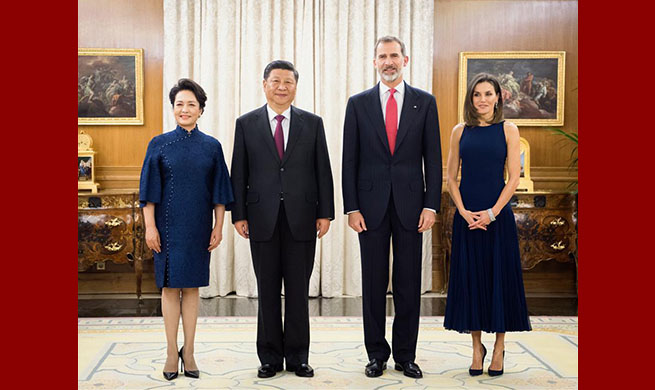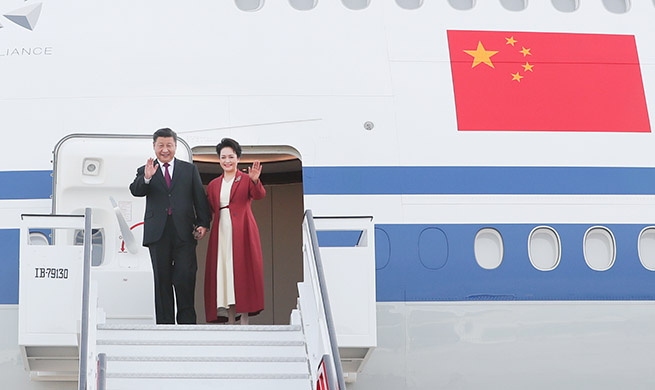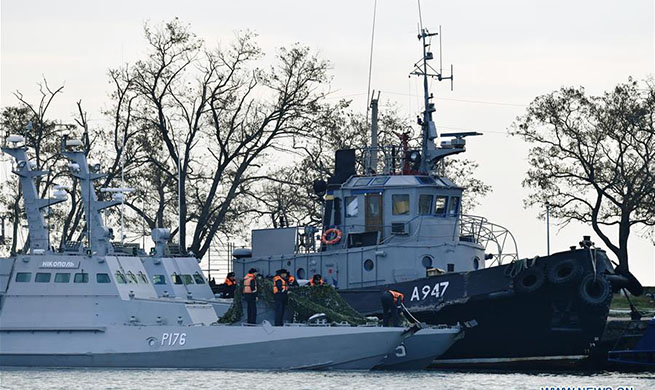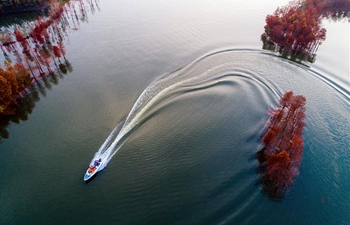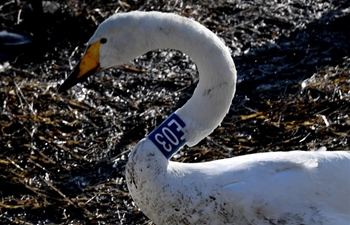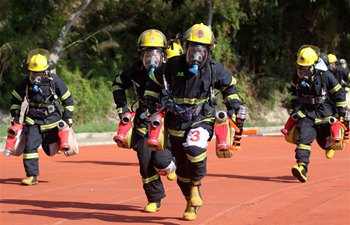TOKYO, Nov. 28 (Xinhua) -- Okinawa Governor Denny Tamaki on Wednesday failed to find consensus with the central government on its contentious plan to transfer a U.S. military base within Japan's southernmost prefecture, meaning Okinawa will now likely lodge a complaint with a committee within Japan's Internal Affairs Ministry ahead of prefecture-wide referendum on the issue.
The central and local Okinawa governments have long been at odds over the planned relocation of the the U.S. Marine Corps Air Station Futenma from a crowded residential area of Ginowan to the less populated coastal district of Henoko in Nago, also in Okinawa.
Tamaki said he told the prime minister in a meeting Wednesday that the people of Okinawa are resolutely opposed to the base's relocation within the prefecture, but Abe, for his part, maintained that the relocation of the base to Henoko remained the only solution under a bilateral pact made with the United States in 1996.
Tamaki told a press briefing after the meeting at Abe's office in Tokyo that he had implored the central government to stop the construction work necessary for the base by "seriously taking into account the public opinion manifested in the result of the Okinawa gubernatorial election."
Tamaki became Okinawa governor on Oct. 4 following the death of his predecessor Governor Takeshi Onaga who had been urging the central government to reduce Okinawa's disproportionate base-hosting burdens.
Due to the impasse, Okinawa will now likely file a protest with the Central and Local Government Dispute Management Council under the auspices of Japan's Internal Affairs Ministry.
The council is set up to adjudicate disputes between the central and local governments.
Before the talks between Abe and Tamaki, Deputy Chief Cabinet Secretary Kazuhiro Sugita and Okinawa's Vice Governor Kiichiro Jahana held their fourth and final meeting on Wednesday, but they failed to find any consensus on the long-running issue and the impasse remains.
Amid growing anti-U.S. sentiment on the tiny subtropical island and following Tamaki being elected as governor in September's gubernatorial election on a platform of opposing the base's relocation and lessening Okinawa's base-hosting burdens, Tamaki has been pushing to resolve the issue through dialogue with the central government.
The central government, however, despite Tamaki's push for face-to-face talks, has forged ahead unilaterally with land reclamation work necessary to build the new base after the land ministry issued an injunction to suspend Okinawa revoking a permit for the landfill work.
Tamaki had previously said that the central government's persistent push to continue with the landfill work is completely unacceptable and against the will of Okinawans who wish to see the base moved outside of Okinawa and Japan altogether.
He said the central government's move "tramples on the will of voters shown in the Okinawa gubernatorial election" and is "totally unacceptable".
Okinawa hosts the vast majority of Japan's U.S. bases, yet the island accounts for just a fraction of Japan's total land mass.
Instances of violent crimes, including murder and rape by U.S. military-linked personnel along with a near constant string of U.S. military related accidents, particularly those involving aircraft, has led to rising anti-U.S. sentiment on the island .
Calls are becoming more vociferous from Okinawans for its postwar occupation by U.S. forces to be completely ended, as, legally, Okinawa's control under the U.S. ended in 1972.
Having already petitioned Washington over the matter, Okinawa Prefecture will hold a referendum on the relocation of the base within the prefecture on February 24.
An ordinance was announced on Oct. 31 calling for a referendum on the controversial relocation plan by the central government, with the vote taking place within 6 months, or by the end of April.
Due to there being no major events at the time, the highest voter turnout is expected to be in February, the prefectural government has said.
The prefecture is trying to coordinate all municipalities in Okinawa to take part in the referendum and the majority of cities have confirmed they will field staff members.
According to Tamaki, the referendum will be an extremely important chance for the people of Okinawa to make their voice truly heard in Japan and across the world.
Tamaki said he hopes as many people as possible in Okinawa will take part in the referendum.

